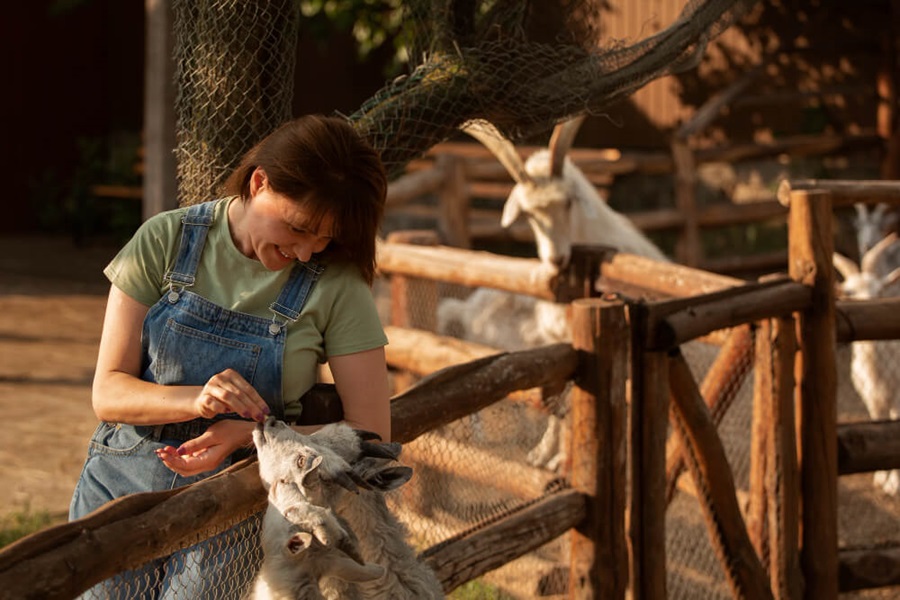Online learning and volunteering are being combined to improve volunteer skills and effectiveness.
This is in response to the changing landscape of remote work and education. In this article, you will learn how online learning can aid volunteer skills, as we offer insights into the types of volunteer work available, and what skills can be obtained from it. Volunteering has benefits for your resume and can make you more attractive to employers. It helps you develop valuable skills that can be useful in the job market. By volunteering, you can stand out from other job candidates. Understanding these advantages is important for your career growth.
Do you wish to improve on your current skill set? Browse our skill improvement courses and take a particular skill to the next level.
What are Volunteer Skills
Volunteer skills are diverse abilities that learners can use to effectively assist others and champion various causes. These skills go beyond simple tasks, as these can reflect the volunteer’s commitment, collaborative spirit, and self-driven nature. Given that volunteer work is often unpaid, which can sometimes deter some from considering this path, you can nonetheless possess a strong sense of purpose and focus on long term goals. Transferring these volunteering skills to the workplace can be immensely beneficial, showcasing their broader value.
Take a look at our unique understanding epilepsy course, exclusive only to NCC.
Types of Volunteer Work

There are many industries that you could consider volunteer work in, such as the following:
- Animal Care: Engage in dog walking, animal rehabilitation, or support at local farms and zoos. While direct animal interaction is common, roles in event organisation, fundraising, or photography are also vital. Organisations such as the RSPCA are always happy to accept volunteers, for instance.
- Community Projects: Contribute to local initiatives like recycling programs or health support groups, with flexible commitment levels allowing for short-term involvement.
- Sports Volunteering: Assist in coaching, administration, or event organisation within sports clubs, requiring enthusiasm more than expertise. Training is often provided.
- Hospital Volunteering: Opportunities in healthcare settings range from administrative support to patient interaction, enhancing service delivery and gaining insights into the medical field. The NHS England website provides further details including working with St. John’s Ambulance Service.
- Environmental Volunteering: Green volunteering spans from wildlife conservation to environmental education, with organisations like RSPB and Woodland Trust offering numerous opportunities to protect and enhance natural habitats.
There are many volunteer opportunities for all ages. It’s never too early or late to start a career in something you love. This variety in volunteer work allows learners to find roles that match their interests and schedules, increasing further skill development and community connection.
How Online Learning Can Help With Volunteering
Online learning can help volunteers improve their skills for different types of voluntary work. Through online courses, volunteers can learn technical skills, communication, cultural awareness, disability awareness, and project management. This educational avenue not only increases the effectiveness of volunteers but also enriches their personal and professional development, making a substantial social impact.
Learn how to advance your communication with our guide on different communication methods.
The Core Qualities of a Good Volunteer
A good volunteer can display the following qualities:
- Passion
- Compassion
- Strong work ethic
- Teamwork
- Time management
- Positive attitude
- A willingness to help
These soft skills are crucial for volunteering, overshadowing the need for specific technical skills. With the right mindset and a readiness to learn, volunteers can acquire the necessary skills for their tasks, demonstrating the significant role of attitude in successful volunteer work.
Develop your skills for those in need with our learning disabilities awareness course.
Skills as a Volunteer

Volunteering not only supports communities but also can provide personal growth by developing a wide array of skills. Here’s a closer look at the volunteer skills that you can acquire:
- Leadership and Initiative
By leading projects or teams in volunteer settings, individuals can develop their leadership skills, learning to take initiative and commit to organisational objectives. This experience instils a sense of responsibility and the ability to guide others towards common goals.
- Teamwork and Collaboration
Working in volunteer groups teaches teamwork, where you can learn to cooperate and support each other in often challenging and unpaid tasks. This environment creates a collaborative spirit and the ability to work effectively in diverse teams.
- Cultural Competence and Empathy
Volunteering in various communities increases understanding of different cultures and social backgrounds, promoting empathy and a global perspective. These experiences deepen volunteers’ ability to connect with and support a broad range of people.
- Communication and Professionalism
Effective communication is a key skill developed in volunteering, vital for activities ranging from fundraising to representing organisations at public events. Maintaining professionalism in these roles is essential, as it reflects positively on the volunteer and the organisation.
- Adaptability and Learning
Volunteers often face unique challenges that require quick thinking and adaptability. The ability to learn rapidly and respond to new situations is a valuable skill gained through these experiences.
- Mentoring and Teaching
Volunteering provides opportunities to mentor or teach others, improving leadership and interpersonal skills. This aspect of volunteering prepares volunteers for roles that require guiding and educating others in various settings.
These skills from volunteering not only contribute to personal development but also improve professional capabilities, making volunteers valuable assets in both community and workplace environments.
Explore our case study that looks into how online learning helps community engagement skills
How To Improve Your Volunteer Skills
Improving your skills for volunteering is a proactive way that you can significantly impact your personal and professional life. Here are ways to develop your volunteer skills:
- Practice Through Increased Participation
Regular participation in volunteer activities helps identify areas for improvement and strengthens existing skills. By engaging more frequently in volunteer work, you gain practical experience and become more adept in various tasks, which in turn boosts your confidence and effectiveness as a volunteer.
- Take Leadership Roles
Stepping up to lead projects or initiatives within volunteer organisations can dramatically increase your leadership and project management skills. Leadership roles provide insight into the strategic aspects of operations and improve decision-making abilities, preparing you for more significant responsibilities.
- Embrace Diverse Responsibilities
Expanding your role within volunteer activities allows you to develop a broader skill set. Taking on different tasks, from administrative duties to direct service work, exposes you to various aspects of the organisation, developing your adaptability and problem-solving skills.
- Learn from Peers and Mentors
Interacting with experienced volunteers or mentors can provide valuable insights and guidance. Their feedback can help refine your skills and approach to volunteering, bringing forth a culture of continuous learning and improvement within the organisation.
Transferring Volunteer Skills to the Workplace
It is widely considered that competencies obtained through volunteering are transferable to the workplace, therefore enriching your professional life:
- Support and Collaboration: Utilise your volunteer experiences to offer support and collaboration in the workplace. Assisting colleagues in times of need not only strengthens team bonds but also demonstrates your initiative and problem-solving capabilities.
- Adaptability and Initiative: Volunteering often involves tackling new and unexpected challenges. Applying this adaptability and readiness to take on new tasks at work can position you as a versatile and proactive employee.
- Community Engagement: Encourage your workplace to engage in community service. Organising volunteer activities for your team can enhance corporate social responsibility and improve team cohesion.
The Broader Impact of Volunteering: Disability Awareness
Volunteering can play a crucial role in promoting disability awareness and inclusivity. For example, consider restaurants that hire people with disabilities, thereby fostering an inclusive environment and challenging societal norms. Such initiatives highlight the importance of understanding and supporting diversity, leading to a more inclusive and empathetic society.
Even today, more workplaces are becoming increasingly aware towards providing fairness between people of different learning abilities, developing equality further. For example, the current series of Dragon’s Den in 2024 made history with a successful pitch that included an entrepreneur that has Down’s Syndrome.
Don’t miss out on these volunteering opportunities for your community.
Adopt Valuable Skills from Volunteering To Help Others
In summary, volunteer work is not just about contributing to the community; it’s also a platform for personal and professional growth. By actively seeking opportunities to develop your volunteering skills, you not only contribute more effectively to your cause but also bring valuable skills and experiences into your workplace, promoting a culture of empathy, cooperation, and continuous learning.
FAQs
Do you need any skills to volunteer?
No, you don’t necessarily need specific skills to volunteer, as many organisations provide training. However, having certain skills can be beneficial and may determine the type of volunteering you do.
How does volunteering support learning and development?
Volunteering helps you learn and grow by giving you hands-on experience in real-life situations. It lets you learn new skills, improve ones you already have, and understand different societal issues better.
What skills do you get from volunteering with children?
Volunteering with children helps you develop patience, communication, teaching, empathy, and creativity. It also enhances your ability to engage and connect with young minds, manage different behaviours, and foster a supportive and nurturing environment.
Sources
RSPCA. (n.d.) Volunteer for us. [online] Available at: https://www.rspca.org.uk/getinvolved/volunteer [accessed 13/03/24]
NHS England. (n.d.) Volunteering. [online] Available at: https://www.england.nhs.uk/get-involved/get-involved/volunteering/ [accessed 13/03/24]
RSPB. (n.d.) Volunteering Opportunities. [online] Available at: https://www.rspb.org.uk/helping-nature/support-the-rspb/volunteering/rspb-volunteering-opportunities [accessed 13/03/24]
Woodland Trust. (n.d.) Volunteer With Us. [online] Available at: https://www.woodlandtrust.org.uk/support-us/act/volunteer-with-us/ [accessed 13/03/24]
Special Bridge (2022) 9 Amazing Restaurants That Hire People With Disabilities. [online] Available at: https://www.specialbridge.com/restaurants-that-hire-people-with-disabilities/ [accessed 13/03/24]
Cook, S., (2024) BBC Dragons’ Den makes history with first pitch of 2024 series that captivates four entrepreneurs. Wales Online. [online] Available at: https://www.walesonline.co.uk/lifestyle/tv/bbc-dragons-den-makes-history-28390353 [accessed 13/03/24]
Menjivar, J., 10 Volunteering Opportunities In Your Community. Do Something. [online] Available at: https://www.dosomething.org/us/articles/volunteering-opportunities-in-your-community [accessed 13/03/24]








